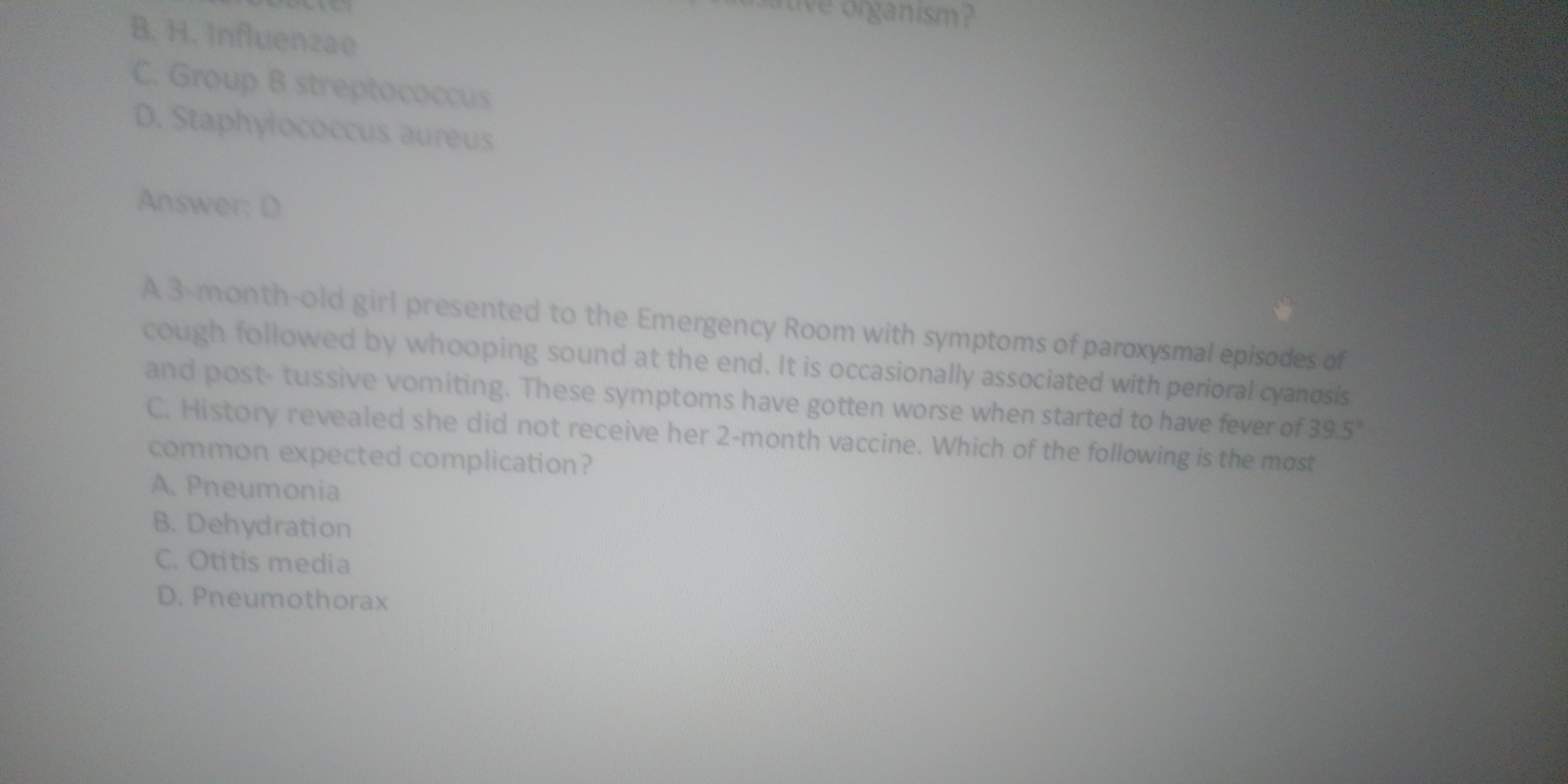A 3-month-old girl presented to the Emergency Room with symptoms of paroxysmal episodes of cough followed by whooping sound at the end. It is occasionally associated with perioral... A 3-month-old girl presented to the Emergency Room with symptoms of paroxysmal episodes of cough followed by whooping sound at the end. It is occasionally associated with perioral cyanosis and post-tussive vomiting. These symptoms have gotten worse when started to have fever of 39.5. History revealed she did not receive her 2-month vaccine. Which of the following is the most common expected complication? A. Pneumonia B. Dehydration C. Otitis media D. Pneumothorax

Understand the Problem
The question is asking about the most common expected complication in a 3-month-old girl who presents with symptoms indicative of pertussis (whooping cough) and has not received her 2-month vaccine. The symptoms include paroxysmal episodes of cough followed by a whooping sound, perioral cyanosis, post-tussive vomiting, and fever.
Answer
Pneumonia is the most common expected complication.
The most common expected complication is Pneumonia.
Answer for screen readers
The most common expected complication is Pneumonia.
More Information
The 3-month-old girl is unvaccinated and presenting with symptoms that are consistent with Pertussis (Whooping Cough). The most common complication of pertussis in infants is pneumonia.
Tips
It is important to recognize the symptoms of pertussis, especially in unvaccinated infants, to ensure timely diagnosis and management and prevent complications.
Sources
- Clinical Features of Pertussis - CDC - cdc.gov
- Whooping Cough (Pertussis) (for Parents) | Nemours KidsHealth - kidshealth.org
- Whooping cough - Symptoms & causes - Mayo Clinic - mayoclinic.org
AI-generated content may contain errors. Please verify critical information